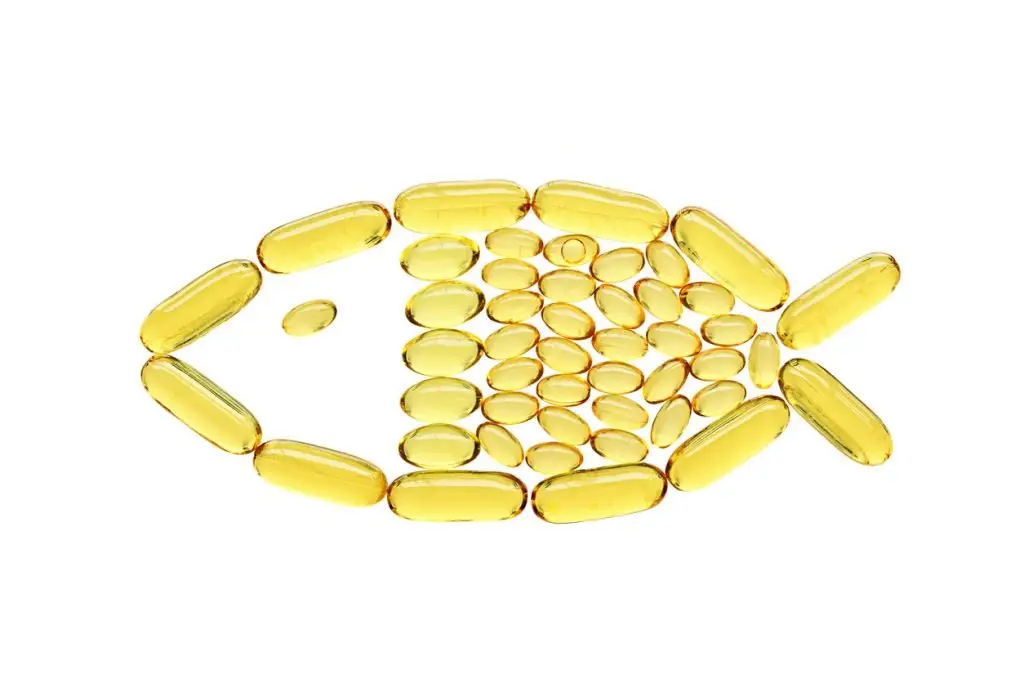Reviewed by Kimberly Cabe, FNP-BC of Forum Health Clarkston
There have been many times in the past I’ve found myself asking, “Have you tried fish oil for that?” For my friends with teenagers who struggle with acne or the ones who have a hard time focusing, it seems that’s my common response to every concern. What’s always surprising to me are the looks I get in return. This isn’t a secret or a hidden miracle that only the uber-wealthy can find. It’s everywhere, from the food we eat to the supplements we buy. It truly makes me wonder why more people do not know about the multiple health benefits of fish oil.
What is Fish Oil
First, in order to know the benefits of something, you’ll need to know what it is and where it comes from. The basic definition: Fish oil comes from the tissues of oily fish such as sardines, anchovies, herring, white fish, mackerels, salmon or trout. This type of fish has oils throughout its body rather than stored solely in the liver. Human consumption comes in two ways: eat wild caught fish regularly and/or for those who just can’t stand the taste (or smell) of fish, take a third-party tested supplement. That is the only way to get the extraordinary benefits found in fish oil. Our bodies are able to make most of the fats we need, but when it comes to these essential fats, we will not produce them on our own. And believe me, we need them for a number of reasons.
Nutrients
Fish oil is full of nutrients like iodine, selenium, and vitamins D and B12. That list alone is convincing enough, but the biggest health benefit of fish comes from another nutrient: The oily fish’s concentrated source of omega-3s, which are the gold in the fish—fatty acids that play important roles in the body and are essential for the functioning of every cell. They have shown to provide a number of health benefits like lowering the risk of cancer, type-2 diabetes, autoimmune disease, depression, and inflammation.
Benefits of Fish Oil
Brain Health
Fish oil works through its effects on brain function, which makes sense when considering that 60 percent of the brain is composed of fats. Let’s dumb it down: It makes you smarter. The science behind this is based on cell-membrane permeability, which occurs when cells become more porous and therefore more effective at letting important chemicals and signals pass through. When the brain sends signals, the electric current and the neurotransmitters (dopamine and serotonin) are then able to cross the barrier from one neuron to another.
- ADHD/ADD Omega 3 fatty acids are known to optimize brain function, which also supports symptoms of ADHD, ADD, and related developmental problems, as well as many other mood and mental health disorders.
- Alzheimer’s Disease The essential fatty acids vital for brain function that are found in fish oil may help fend off the onset of cognitive decline and Alzheimer’s disease.
Depression and Anxiety
Fish oil has shown to induce an antidepressant-effect by having an anti-inflammatory response on the brain.
Arthritis
Omega 3s have shown to be effective at reducing inflammation, which may help relieve symptoms of rheumatoid arthritis, especially joint pain (Dr. Axe).
Cancer
Some studies have found that fish oil may help to prevent and fight various cancers, including colon, prostate and breast. It may also support conventional cancer drugs and make them more effective (Dr. Axe).
Cardiovascular Disease
Omega 3s’ anti-inflammatory properties may help prevent or manage cardiovascular disease. Some studies have found that fish consumption or fish oil supplements can help protect against several risk factors such as hypertension, high levels of triglycerides, and high LDL cholesterol (Dr. Axe).
Skin and Hair
Taking fish oil supports the skin by nourishing it with fats and fat-soluble vitamins that help maintain a smooth, elastic texture (Dr. Axe). It reduces inflammation, which helps diminish acne breakouts, as well as inflammation for sunburn relief.
It promotes shiny, healthy hair growth and combats issues like dandruff and hair loss—a result of an omega 3 deficiency caused by the typical American diet.
Fertility and Pregnancy
Fish oil has shown to support fertility in women by reducing inflammation, balancing hormones and regulating cycles (Dr. Axe). It is also extremely beneficial for women during pregnancy and while breastfeeding as omega-3 needs are even higher than usual.
Weight Loss/Management
A combination of fish oil supplements, a healthy diet, and regular exercise can reduce body fat while also improving heart and metabolic health. Fish oil has been shown to lower triglycerides, increase HDL cholesterol and improves blood flow (Dr. Axe).
Fish Oil Deficiency
The biggest cause of omega 3 deficiency is the overconsumption of foods high in omega 6 fatty acids. Omega 6 comes from things like fried foods, fast foods and boxed foods that contains the dirty oils like vegetable, soybean, canola, and sunflower. The typical American diet tends to contain up to 25 times more omega 6 fatty acids than omega 3 fatty acids. Today, the average American has a 20:1 ratio of omega-6 to omega-3s, when a healthy ratio is more ideally around 2:1 (Dr. Axe).
Omega 3 deficiency has been know to cause:
- Inflammation (sometimes severe)
- Higher risk for heart disease and high cholesterol
- Digestive disorders
- Arthritis
- Joint and muscle pain
- Mental disorders like depression
- Poor brain development
- Cognitive decline
Consuming Fish Oil
Most health and wellness organizations agree that at least two servings of a 3.5-ounce wild caught, oily fish each week is a nice start. When taking daily fish oil supplements, you’ll want to find a third-party tested brand such as Metagenics or Designs for Health.

Final Thoughts
Fish oil is full of omega 3 fatty acids, which come with an array of health benefits. Our bodies do not produce the essential fat found in fish oil. The only way to get it is through eating oily, wild caught fish and/or taking a daily supplement.
References:
https://draxe.com/nutrition/fish-oil-benefits-health/
https://draxe.com/nutrition/omega-3-benefits-plus-top-10-omega-3-foods-list/
https://www.cancertherapyadvisor.com/home/tools/fact-sheets/fish-oil-and-cancer/






